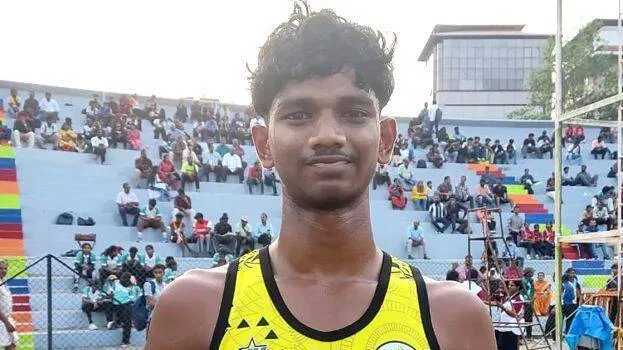

The eight-day State School Sports Meet held in Thiruvananthapuram came to a successful close. This was the second edition of the Olympics-style event. Competitions were held in more than 40 sports, including athletics and aquatics. To encourage sports participation among differently-abled students, an inclusive athletics section was also organised- a model not seen in any other Indian state. As in the previous edition, Thiruvananthapuram district emerged as the overall champion. Their dominance in both games and aquatics helped them lift the Chief Minister's Trophy. In athletics, the highlight event of the festival, Malappuram broke Palakkad's stronghold to become champions. Among schools, Ideal Kadakassery topped the general category, while GV Raja Sports School led among sports schools.
Congratulations not only to the medal winners but also to all the students who overcame challenges to reach the state level, their coaches, parents who supported their children's passion despite difficulties, and everyone who helped make the event a success. The minister's announcement that 50 deserving gold winners would be given houses was another highlight of the event. However, there was a sad note to the festival. Mohammad Ashfaq, a runner from GV Raja Sports School- considered one of India's future athletics stars- was denied a chance to compete in what would have been his last school sports meet. Ashfaq had been selected for India's senior athletics team while still in the junior age group and was representing the country at the South Asian Athletics Championship in Ranchi, which took place at the same time as the school meet. The school had informed the organisers about this clash in schedule.
Ashfaq had bought a ticket with his own money to return to Thiruvananthapuram soon after completing his 400-meter event in Ranchi on October 25 so as to participate in the school meet. However, since he finished second in the 400 meters - just behind the Asian champion from Sri Lanka- the 19-year-old was also included in India’s men’s and mixed relay teams. He went on to win a silver medal with the men’s team and a gold medal in the mixed relay. Because of this, Ashfaq’s travel plans were disrupted, and he had to cancel his original flight ticket. The only available flight after that would have reached Thiruvananthapuram an hour after the 400-meter heats were scheduled to take place. He informed the organisers of this situation and requested that, if he couldn’t run in the heats, he be allowed to take a trial before the final. However, the organisers rigidly refused, saying the scheduled event could not be changed. Even though Ashfaq’s father personally approached the Education Minister’s office and submitted a request, no action was taken.
Ashfaq’s delay was not for personal reasons. He was representing India and winning medals. Yet, the organisers rigidly stuck to the schedule, even though they had changed the timing and venue of other events like javelin throw and cross-country several times. They had also adjusted schedules earlier to suit the chief guests for the closing ceremony. Because he missed the state meet, Ashfaq will not be able to participate in the national school meet, a loss of two certain gold medals for Kerala. Rules can be enforced by systems, but justice requires wisdom and fairness. The most promising athlete had to sit in the stands with tears in his eyes, watching others compete. The organisers who denied him a chance may be forgotten in time- but the future will remember and celebrate Ashfaq. Yet, the tears he shed at his last school meet will remain as a mark of that lost moment.